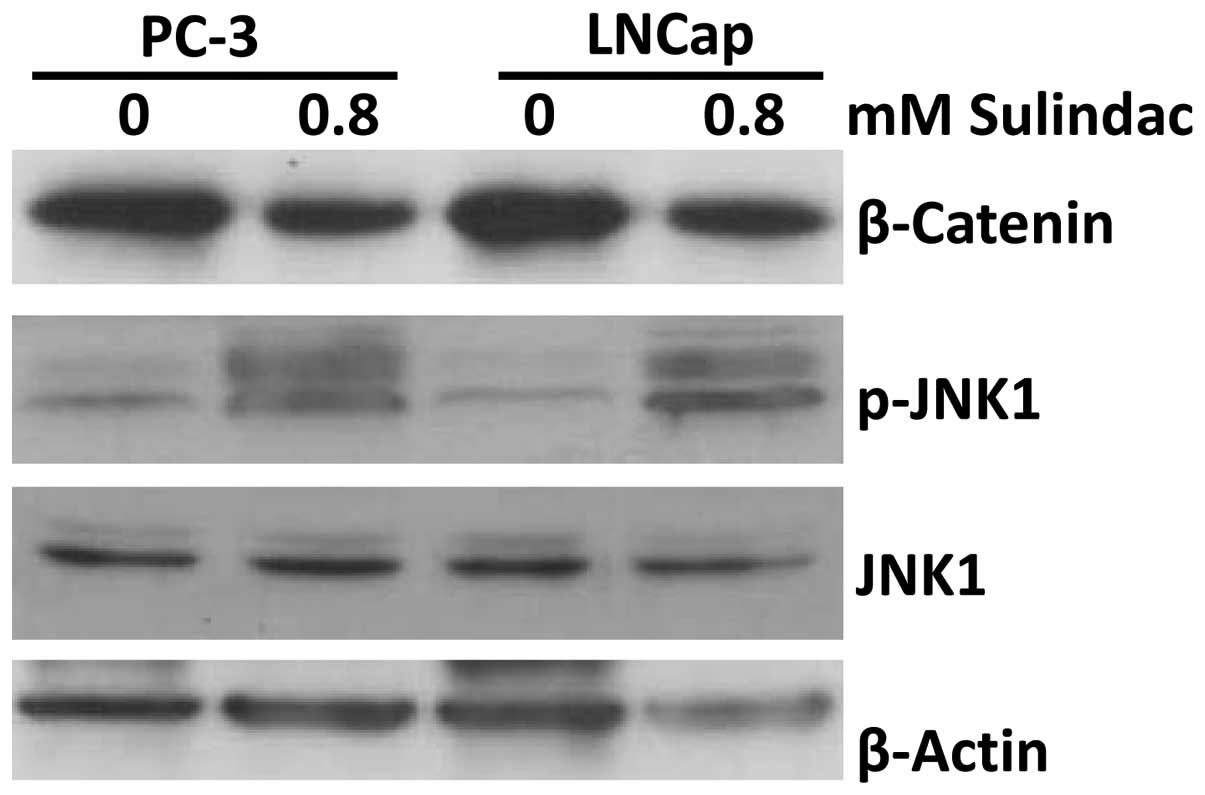|
1
|
Siegel R, Ward E, Brawley O and Jemal A:
Cancer statistics, 2011: the impact of eliminating socioeconomic
and racial disparities on premature cancer deaths. CA Cancer J
Clin. 61:212–236. 2011.
|
|
2
|
Clevers H: Colon cancer - understanding
how NSAIDs work. N Engl J Med. 354:761–763. 2006.
|
|
3
|
Kelloff GJ, Lippman SM, Dannenberg AJ,
Sigman CC, Pearce HL, Reid BJ, Szabo E, Jordan VC, Spitz MR, Mills
GB, et al; AACR Task Force on Cancer Prevention. Progress in
chemoprevention drug development: the promise of molecular
biomarkers for prevention of intraepithelial neoplasia and cancer -
a plan to move forward. Clin Cancer Res. 12:3661–3697. 2006.
|
|
4
|
Yang W, Bancroft L and Augenlicht LH:
Methylation in the p21WAF1/cip1 promoter of Apc+/−, p21+/− mice and
lack of response to sulindac. Oncogene. 24:2104–2109. 2005.
|
|
5
|
Yang W, Bancroft L, Liang J, Zhuang M and
Augenlicht LH: p27kip1 in intestinal tumorigenesis and
chemoprevention in the mouse. Cancer Res. 65:9363–9368. 2005.
|
|
6
|
Han A, Song Z, Tong C, Hu D, Bi X,
Augenlicht LH and Yang W: Sulindac suppresses β-catenin expression
in human cancer cells. Eur J Pharmacol. 583:26–31. 2008.
|
|
7
|
Song Z, Tong C, Liang J, Dockendorff A,
Huang C, Augenlicht LH and Yang W: JNK1 is required for
sulindac-mediated inhibition of cell proliferation and induction of
apoptosis in vitro and in vivo. Eur J Pharmacol. 560:95–100.
2007.
|
|
8
|
Bi X, Pohl N, Dong H and Yang W: Selenium
and sulindac are synergistic to inhibit intestinal tumorigenesis in
Apc/p21 mice. J Hematol Oncol. 6:82013.
|
|
9
|
Chang L and Karin M: Mammalian MAP kinase
signalling cascades. Nature. 410:37–40. 2001.
|
|
10
|
Bode AM and Dong Z: The functional
contrariety of JNK. Mol Carcinog. 46:591–598. 2007.
|
|
11
|
Davis RJ: Signal transduction by the JNK
group of MAP kinases. Cell. 103:239–252. 2000.
|
|
12
|
Weston CR and Davis RJ: The JNK signal
transduction pathway. Curr Opin Cell Biol. 19:142–149. 2007.
|
|
13
|
Weston CR, Lambright DG and Davis RJ:
Signal transduction. MAP kinase signaling specificity. Science.
296:2345–2347. 2002.
|
|
14
|
Tong C, Yin Z, Song Z, Dockendorff A,
Huang C, Mariadason J, Flavell RA, Davis RJ, Augenlicht LH and Yang
W: c-Jun NH2-terminal kinase 1 plays a critical role in intestinal
homeostasis and tumor suppression. Am J Pathol. 171:297–303.
2007.
|
|
15
|
Bode AM and Dong Z: Signal transduction
pathways in cancer development and as targets for cancer
prevention. Prog Nucleic Acid Res Mol Biol. 79:237–297. 2005.
|
|
16
|
Liu J and Lin A: Role of JNK activation in
apoptosis: a double-edged sword. Cell Res. 15:36–42. 2005.
|
|
17
|
Dong C, Yang DD, Wysk M, Whitmarsh AJ,
Davis RJ and Flavell RA: Defective T cell differentiation in the
absence of Jnk1. Science. 282:2092–2095. 1998.
|
|
18
|
Kuan CY, Yang DD, Samanta Roy DR, Davis
RJ, Rakic P and Flavell RA: The Jnk1 and Jnk2 protein kinases are
required for regional specific apoptosis during early brain
development. Neuron. 22:667–676. 1999.
|
|
19
|
Liu J, Minemoto Y and Lin A: c-Jun
N-terminal protein kinase 1 (JNK1), but not JNK2, is essential for
tumor necrosis factor alpha-induced c-Jun kinase activation and
apoptosis. Mol Cell Biol. 24:10844–10856. 2004.
|
|
20
|
Hu D, Bi X, Fang W, Han A and Yang W:
GSK3beta is involved in JNK2-mediated beta-catenin inhibition. PLoS
One. 4:e66402009.
|
|
21
|
Hu D, Fang W, Han A, Gallagher L, Davis
RJ, Xiong B and Yang W: c-Jun N-terminal kinase 1 interacts with
and negatively regulates Wnt/beta-catenin signaling through
GSK3beta pathway. Carcinogenesis. 29:2317–2324. 2008.
|


















